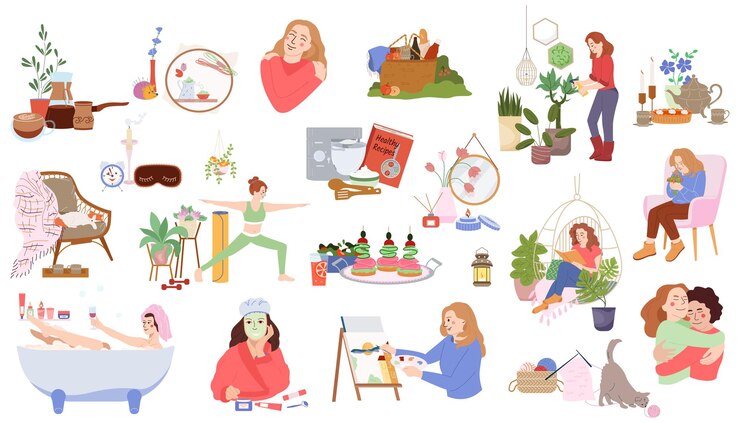
Most days, I wake up feeling energetic and ready to tackle whatever comes my way. I get the kids fed and prepped for the day, all while savoring my first of many delightful cups of coffee. Everything feels just right.
But as the afternoon hits, around 3 p.m., my energy starts fading. I become sluggish and my limbs feel heavy, which means exercising or cleaning the kitchen floor goes out the window. I really dislike feeling this exhausted, unproductive, and irritable, especially with tasks still waiting to be completed. This isn’t how I planned my day to go.
Maybe it’s the opposite for you. Mornings could feel like you’re dragging, but by lunchtime, you magically muster the energy to play with your kids or tackle the laundry. Here’s a key lesson I’ve been learning while navigating this stay-at-home chaos: whatever I’m feeling emotionally is okay.
It may sound simple, but accepting our moods and feelings as they come is surprisingly difficult. Many of us grew up hearing “don’t cry,” “you’ll be ok,” or “be tough,” and as adults, we end up criticizing ourselves for experiencing perfectly normal emotions.
Why does this matter? During my training in Mindfulness-Based Stress Reduction (a popular program developed by Jon Kabat-Zinn for teaching mindfulness), I learned about “secondary pain.” This concept is crucial because when you resist and fight your emotions, you make things ten times worse. Instead of just dealing with your primary emotions, you invite a host of secondary emotions to join in.
Resisting your emotions can manifest in various ways—self-criticism, anger, numbing with screens, food, shopping, alcohol, exercise, or distracting oneself with work. Instead of acknowledging emotions like overwhelm, sadness, or anger, you dig a deeper “emotional hole.”
I’ve been holding onto this quote lately: “The best way out is always through.” It’s often attributed to poet Robert Frost and underscores the importance of allowing ourselves to feel our emotions so they can naturally pass.
Emotions are meant to flow in and out, serving to communicate something to us. As chemical reactions, they only last about 90 seconds. So, even though I dislike my mid-afternoon energy dips and missing out on cleaning or exercise, I’ve been practicing acceptance, letting go of my initial frustration.
I remind myself, “It’s okay to feel off right now. It’s understandable. I’ve done my best today, and my body is telling me to slow down. I don’t need to fight this.” I try to ride the waves of my emotions without letting them swell into a tsunami, especially when life is already offering plenty of those.
No matter where your mood takes you throughout the day, it’s okay. If you need an afternoon break, lie down on the couch. If you need to cry, let it out. If you can’t cook dinner, let the kids have cereal. If you’re grumpy for a bit while homeschooling, forgive yourself and move on. And if you feel like scrolling through social media, do it mindfully and consider other activities too.
Listen to what your body and emotions are telling you, and find peace and empowerment in letting things be and letting emotions go. This is the most vital self-care you can practice.
Additional resources:
– Parenting in a Pandemic: How to Protect Your Child from Stress and Anxiety
– How to Raise an Emotionally Intelligent Child
– 10 Everyday Ways to Improve a Child’s Behavior and Mood
– 75 Calm Down Strategies for Kids That Work



